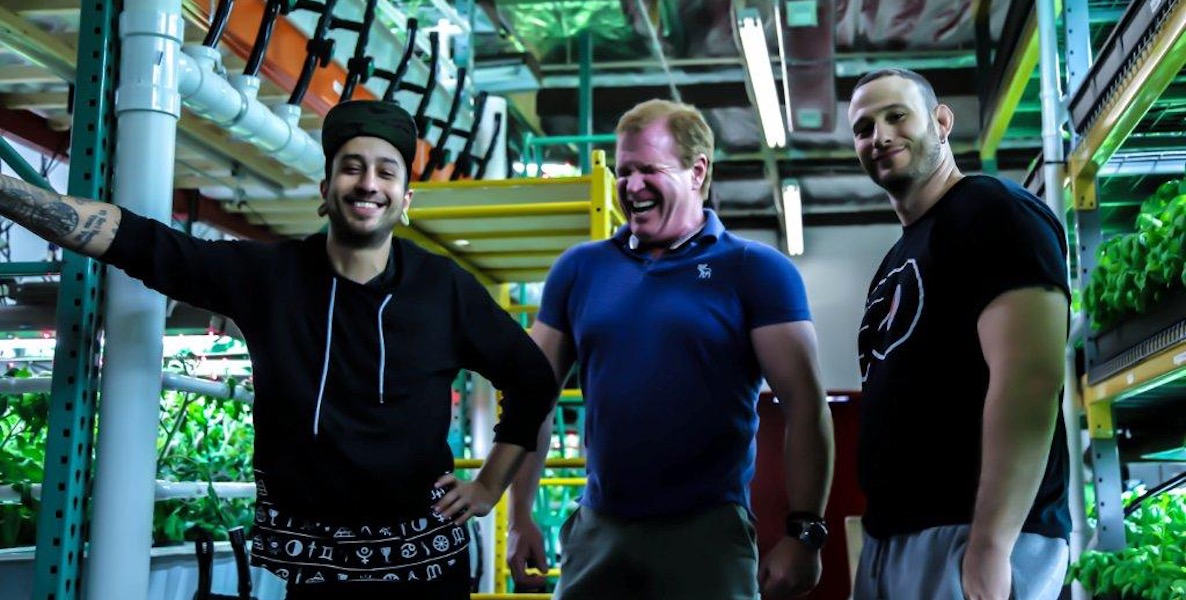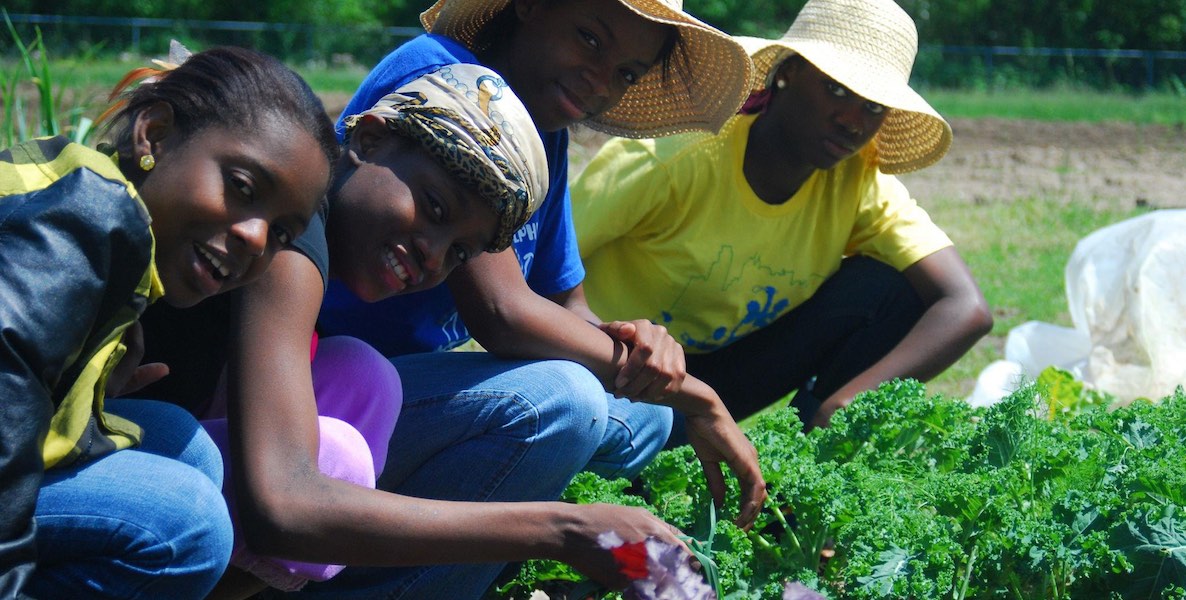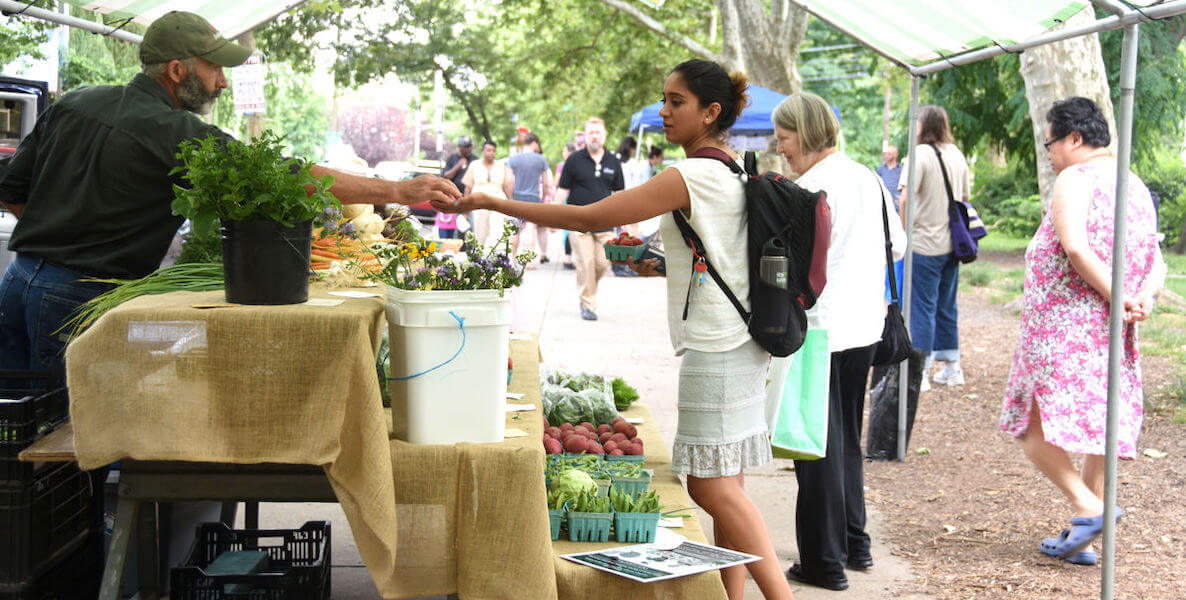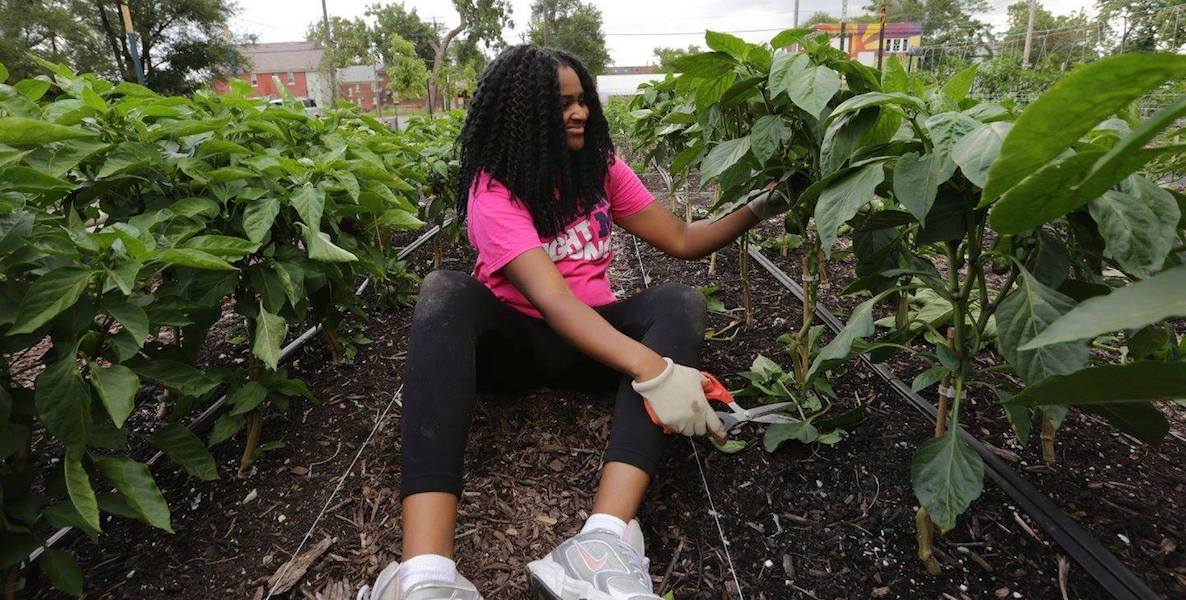One of Detroit’s biggest problems is pretty simple: It’s just too big. Built out during the industrial boom, the city has lost more than 400,000 residents since 1990, and more than 200,000 since the mid 2000s alone.
And what have those departed Detroiters left behind? Vacant space. In 2012, it was estimated that 40 of 139 square miles were vacant; an untold number of buildings are similarly unoccupied. And the city is doing everything it can to fight the scourge of vacancy, from pilot programs encouraging folks to come to the city and live for free in a house of their choosing—if they patch it up, of course—to simply knocking down rows of abandoned homes. Detroit is open to any and all ideas—and that’s where the Michigan Urban Farming Initiative (MUFI) comes in.
Using three acres of vacant space in the city, MUFI has created a farm-to-table agricultural community, which will generate fresh produce for more than 2,000 households near the operation. Aside from farming space, the “agrihood,” as it’s known, features a massive three-story building that will hold events for MUFI, as well as serve as its office space and commercial kitchen. The setup will feature intern housing, and the outfit will be operated by community members who will work part or full time in the agrihood. The land features greenhouses and growing rows, and will help MUFI in its mission to supply local schools and food pantries with fresh produce.
“Agrihoods are the integration, in cities particularly, of food production, energy efficiency and affordable housing, recreation and community spaces based around farming. You have food, healthcare and education. Another way of describing an agrihood is as a ‘permaculture village,’” says Paul Glover.
In case you’re wondering about the key difference between an urban or community farm and an agrihood, it’s simple: where an urban or community farm offers an opportunity for people to supply themselves and their neighbors with fresh produce, an agrihood focuses on making a farming outfit the very center of a small community, the way manufacturing used to be.
Philly is no stranger to the notion of urban farming. Earlier this year, The Citizen profiled Metropolis Farms’ mission to bring vertically grown vegetables to the Philadelphia market; and we’ve written about many of the city’s urban farms, and farmers’ markets. Hell, you could say that the city itself was founded as a massive agrihood, considering that William Penn wanted every Philadelphian to have an acre of land for this city to be an agrarian, orchard-focused wonderland.
But MUFI’s goal to build an entire neighborhood around a single farm isn’t one that’s been achieved in recent memory in Philadelphia, if not for lack of trying. Paul Glover, a one time Green Party Pennsylvania gubernatorial candidate who founded the Philadelphia Orchard Project, has been pushing the idea for a couple of years now. He even made a push to acquire a 40-acre lot of land in Logan Triangle for the expressed purpose of creating Philadelphia’s first fully committed agrihood, and his intentions dwarf those of MUFI’s three acre lot. If Glover had his way, he’d squeeze the following into those 40 acres: an armada of affordable “tiny” houses, 100 greenhouses and 500 fruit trees. He also vows that the Logan Triangle project would have employed 50 percent of the agrihood’s residents. The land option for the 40 acres in Logan Triangle has since been transferred to a major developer, but Glover is optimistic that neighborhood pushback will get him a chunk of the land for his project, called LOAM. He is also looking at a five acre parcel in North Philadelphia on which to potentially create a bite-sized version of his proposed agrihood, and he claims that he was offered a one-acre parcel by a Pennsylvania state representative.
“Agrihoods are the integration, in cities particularly, of food production, energy efficiency and affordable housing, recreation and community spaces based around farming. You have food, healthcare and education. Another way of describing an agrihood is as a ‘permaculture village,’” says Glover, who is calling for increased spending on urban farming and agrihoods in Philadelphia, and not just on vacant land parcels. Similarly uninhabited in Philly are thousands of usable buildings that could be converted into greenhouses or vertical farms; Glover says that there are 700 warehouses and factories in Philadelphia alone that could be renovated for such use.
Ryan Kuck, executive director of Philly’s massively successful Greensgrow Farms, says that there is definitely value in the concept of agrihoods, but rankles at what he sees as the novelty of the concept. “Agrihoods are nothing new,” he says. “It’s a concept and a term that comes from the evolution of how cities see themselves as sustainable and healthful places to live.”

Get More From Every Story
We include boxes in nearly every story to help you take action. Click the boxes below to see how you can make Philly better.
Kuck says that the top selling point of such agrihoods would be the fact that they help legitimize the usefulness and utility of accommodating for green spaces in modern urban planning. “Even 30 years ago, there were 500 community gardens and backyard plots without support, and we lost a lot of those developments by not prioritizing how green spaces play a role in how we shape and plan for cities,” Kuck says. “In some ways, the term ‘agrihood’ is a little bit irrelevant to me, but if it gets people thinking about planning and galvanizing them in the future, that’s great.”
Philadelphia is home to 40,000 vacant buildings and more than 42,000 vacant lots; Philly’s population has been on a steady incline since 2000, and many thousands of Philadelphians lack easy access to fresh food. This city has all the tools to focus on creating its own agrihoods, and while they won’t abolish hunger or entirely do away with food deserts, they’re a good place to start. Detroit, more than anything, is being creative in its handling of its vacancy crisis, bringing everyone from farmers to artists to professional millennials to live in and repair uninhabited housing and land parcels; it’s welcoming change and development to neighborhoods that desperately need it. Instead of lambasting the existence of similar properties in Philly and using them almost exclusively as urban-blight b-roll stand ins, let’s make something out of them.
Let’s make them grow.
Photos from The Michigan Urban Farming Initiative via Facebook







